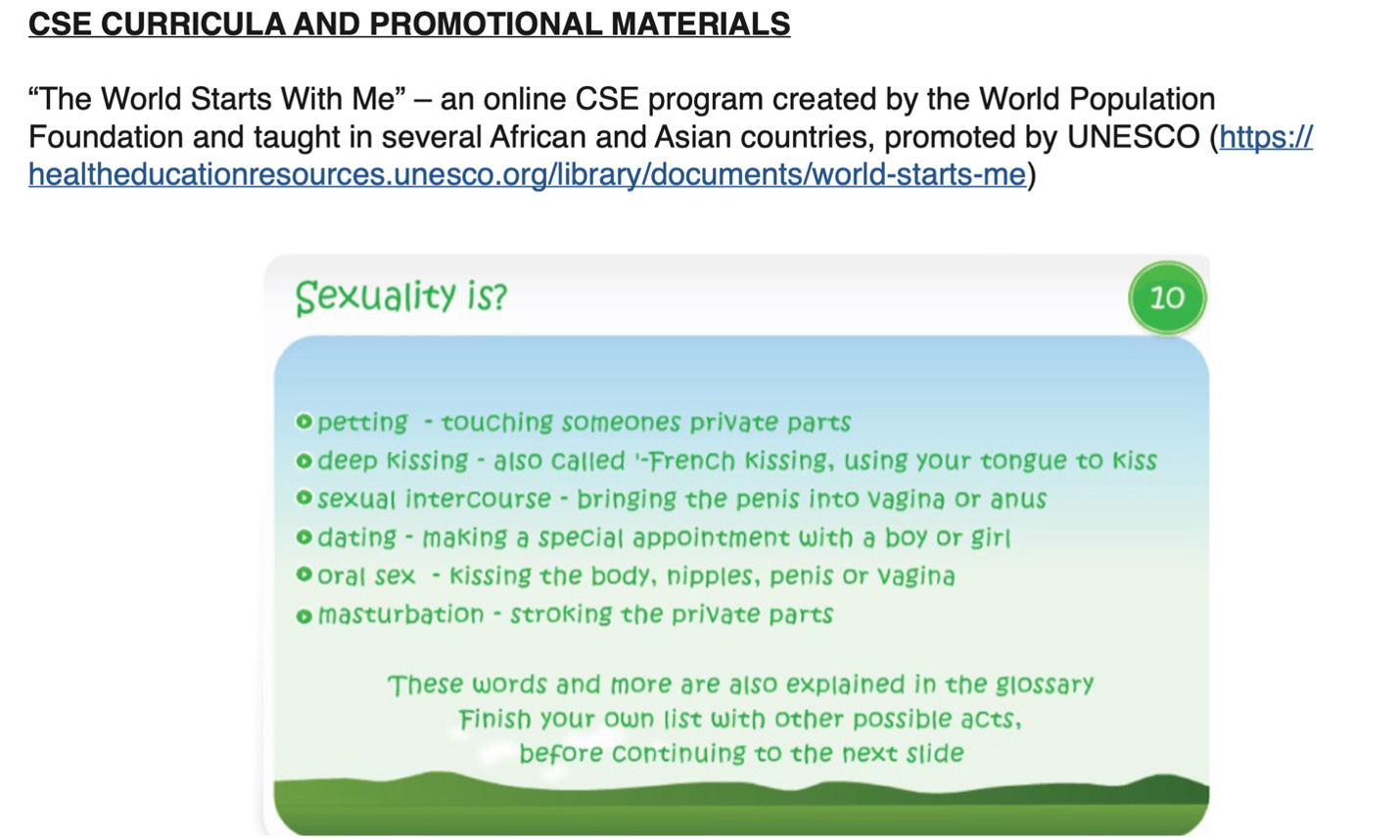Traditional Countries Stop Biden Administration Sexual Agenda for Children

NEW YORK, April 15 (C-Fam) Traditional countries dealt a decisive and unexpected blow to the Western sexual agenda at an annual population conference at the United Nations yesterday.
Western countries were able to unduly influence negotiations so that the final draft resolution included the controversial term “comprehensive sexuality education” but were ultimately unable to force the adoption of the agreement over the objections of over two dozen traditional countries from Asia, Africa, and the Middle East and Eastern Europe.
The Biden administration, the European Union, and other Western nations were on track to force the adoption of the resolution that promoted “comprehensive sexuality education” and sexual autonomy for children, something they have tried to do for over a decade without success. To assure this outcome, earlier in the week the United States and European Union sent separate emails to the Moldovan chair saying that they would not accept an outcome document that did not have a reference to sexuality education.
But then something happened that no one expected.
Dozens of delegates took the floor expressing “grave concerns and disappointment” over the manner in which the Chair chose to address the priorities and positions of some delegations in comparison to the priorities and positions of others.
No one was prepared for the calculated show of solidarity and diplomatic savvy exhibited by traditional countries. After hours of statements demonstrating there was no consensus the chairman of the conference, the Ambassador of Moldova to the United Nations, was forced to withdraw his proposed resolution.
A disappointed delegate from Pakistan eloquently accused Western countries of holding education policy hostage until all countries submit to their sexual agenda.
“For the sake of comprehensive sexuality education we have compromised education for all,” she said, complaining that little to no attention had been paid to access to education, sanitation, books, and other aspects of education infrastructure needed for the 263 million children out of school.
She encouraged Western countries to implement comprehensive sexuality education within their own borders without attempting to impose it on others and to respect the sovereignty and priorities of other countries.
“One country’s priorities cannot be the priorities for all,” she said.
The Egyptian delegate expressed frustration that Western countries refused to include language about the “prior right” of parents to direct the education and upbringing of their children drawn from the Universal Declaration of Human Rights, whose 75th anniversary takes place this year.
“The language from the Universal Declaration of Human Rights was not acceptable to the same delegations lecturing us about having a constructive attitude,” he said in response to accusations that the 22 countries who opposed the language on comprehensive sexuality education were being intractable.
Above all, countries complained about the process whereby the draft resolution was presented for adoption.
The Moldovan chairman presented a final draft for adoption at 10:30pm on Thursday night, less than the 24 hours prior to adoption of Friday morning required by UN rules of procedure. The proposed draft contained the same language on sexuality education that the 22 countries had objected to earlier in the week, and an additional surprise paragraph about the right of adolescents to access abortion, contraception, and other reproductive health services without parental consent that had not been discussed in negotiations.
Traditional countries rallied late on Thursday night and in the early morning were ready to mount the final attempt to save the resolution.
The 22 countries were Algeria, Belarus, Brunei Darussalam, Cameroon, Democratic Republic of the Congo, Egypt, Eritrea, Ethiopia, Gambia, Iraq, Iran, Libya, Mali, Mauritania, Nigeria, Syria, Russian Federation, Saudi Arabia, Senegal, Yemen, Uganda and Zimbabwe.
The debate around CSE is one of the most controversial in multilateral negotiations. Sexually explicit curricula from UN agencies promote sexual autonomy for children including encouraging them to discover sexual pleasure, masturbation, and transgenderism.
The promotion of CSE programs by western countries ignores that these programs have failed despite billions of dollars spent over the last decade in the U.S. to make sex “safe,” said sex education expert Mary Anne Mosack.
“At a time when there is growing concern over the worsening mental health status of adolescents, it is crucial that we do not exacerbate this alarming health emergency by promoting ‘comprehensive sex education’,” Mosack, president of Ascend told the Friday Fax.

View online at: https://c-fam.org/friday_fax/traditional-countries-stop-biden-administration-sexual-agenda-for-children/
© 2026 C-Fam (Center for Family & Human Rights).
Permission granted for unlimited use. Credit required.
www.c-fam.org








